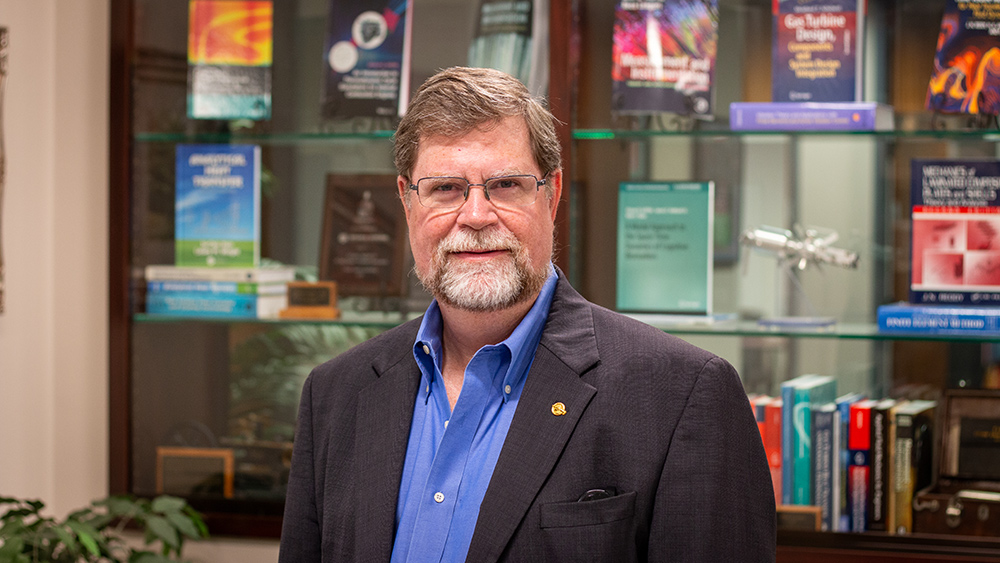
Dr. Robert Ambrose is the 2023 recipient of the Charles Russ Richards Memorial Award from the American Society of Mechanical Engineers (ASME).
The award recognizes an engineer who has demonstrated outstanding achievement in the two decades or more since graduating with their degree. It was established in 1944 as a partnership with the national mechanical engineering honor society, Pi Tau Sigma.
Ambrose is the J. Mike Walker '66 Chair Professor in the mechanical engineering department at Texas A&M University and Director for Space and Robotics Initiatives for the Texas A&M Engineering Experiment Station. He is recognized as a member of the National Academy of Engineering.
Among his many contributions to the field of engineering, working to solve the challenges facing rovers on the Moon’s surface and developing robots capable of safely working alongside humans are those that he considers to be the most impactful. His national service — and encouragement of others to use their skills and knowledge to serve — in his work with NASA has also been a defining feature of his career.
“Working at NASA was my way to serve,” said Ambrose. “It was an engineer’s form of service to the country, and I encourage others to serve the nation in any way they can."
The recognition’s connection to Pi Tau Sigma, especially, is significant to Ambrose. As an undergraduate student, he joined the honor society and was elected in his senior year to serve as president of his local chapter — a role he credits as his first step into the mechanical engineering profession.
For Ambrose, the future continues to be bright for mechanical engineers — particularly those passionate about solving significant problems. But for all the fun of building new machines, he is clear that any new creation should start by solving a problem.
“Mechanical engineering is at the forefront of society’s biggest challenges in transportation, energy, safety, manufacturing, and all the new machines we are seeing for logistics, food production, construction, and healthcare,” said Ambrose. “The advances in batteries and continued improvements in communication, microcontrollers, motors and sensors mean that 10-year-old machines are now obsolete. So not only are there new machines to design, but even the old ones are going back to the drawing board. What a great time to be a mechanical engineer.”